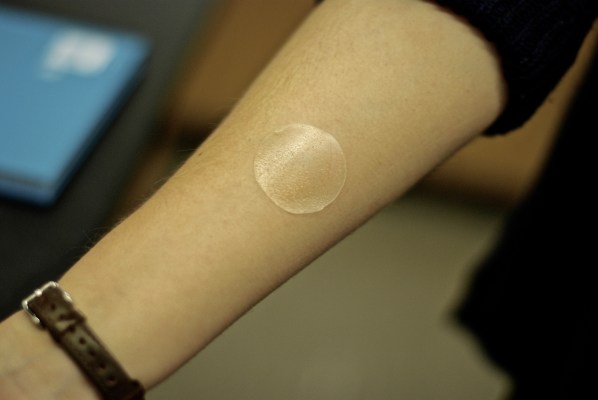Avro, a life sciences startup in Y Combinator’s current batch, is banking on a method to deliver medications to populations unable to swallow or chew — it will administer them through the skin.
Starting with allergy medications, the startup is developing skin patches that release drugs commonly used in seasonal allergies for children. The patches act much like nicotine patches, which deliver nicotine to those trying to quit smoking, but can deliver a variety of drugs, such as allergy medications, through our body’s largest organ.
Co-founder Shakir Lakhani, who suffers from both seasonal and food allergies himself, tells TechCrunch he wanted to start with allergy relief not just for personal reasons but because it’s an area where children are resistant to taking the medications already out there.
“There’s medications that say they taste like banana but don’t really taste like banana, ” he said. “The drugs are also relatively safe so it’s something we can work with without being too worried.”
It’s also not the first company to offer transdermal drug delivery. Miami-based pharmaceutical company ProSolus creates skin patches for delivery of various generic drugs and over-the-counter products, Fremont outfit Zosano makes specialty transdermal patches for delivery of migraine-reducing medicines and Viaskin is making a patch for kids with peanut allergies — though clinical trials have so far not gone well.
These companies could easily start offering the same types of patches as Avro, should the startup prove the market need.
One advantage is that the drugs Avro wants to use in its patches are already out there — it wouldn’t need to prove they work. They just need to prove the delivery method is safe and effective.
But the startup has a long way to go before getting these patches into the hands of consumers. First, Avro will need FDA approval to sell in the United States and Canada, where the company plans to market its patches. To get there, it will need to conduct some human clinical trials, which Lakhani says he’s in the process of looking into at the moment but believes he’ll be able to get up and running in Q3 of this year.
Lakhani also mentioned his skin patches could eventually offer other types of medicines.
“We’re looking at things like people suffering from neurodegenerative diseases and more intense diseases that inhibit your ability to swallow, like Multiple Sclerosis,” he told TechCrunch. “I think those will be really interesting avenues for us to go down in the future and we’re just starting to initiate conversations with other companies who might be good partners for us.”
